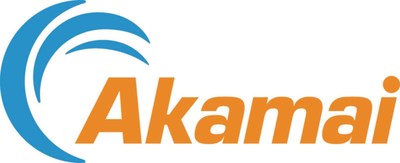Akamai Finds API Vulnerabilities to be a High-Stakes Game for Companies and Individuals Worldwide
Akamai Technologies has released a new report detailing the growing vulnerabilities in application programming interfaces (APIs), as they are projected to become the most frequent online attack vector by 2022. The report, 'API: The Attack Surface That Connects Us All,' outlines the security challenges organizations face, highlighting over 11 billion attempted attacks from January 2020 to June 2021. SQL Injection remains the most common attack, followed by Local File Inclusion and Cross-Site Scripting. Akamai emphasizes the need for enhanced API security measures to protect digital experiences.
- Collaboration with Veracode to enhance report credibility.
- Comprehensive data detailing 18 months of attack traffic provides valuable insights for security improvements.
- APIs security often treated as an afterthought, posing significant risks.
- Ongoing vulnerabilities may result in loss of customer trust and potential revenue impacts.
Insights
Analyzing...
CAMBRIDGE, Mass., Oct. 27, 2021 /PRNewswire/ -- Akamai Technologies, Inc. (NASDAQ: AKAM), the world's most trusted solution to power and protect digital experiences, today released new research into the evolving threat landscape for application programming interfaces (APIs), which according to Gartner will be the most frequent online attack vector by 2022. The report, 'API: The Attack Surface That Connects Us All,' is the latest from Akamai's State of the Internet / Security report series. The new report also features a collaboration between Akamai and Veracode researchers, including a guest essay written by Chris Eng, Chief Research Officer at Veracode.
APIs are inherently designed to be fast and easy pipelines between different platforms. While this priority on convenience and user experience leads APIs to be highly essential to many businesses, it also makes them appealing targets for cybercriminals. Akamai's report highlights the frustrating patterns of API vulnerabilities, despite the improvements that have been made in Software Development Life Cycles (SDLCs) and testing tools. Often, API security is relegated to an afterthought in the rush to bring them to market, with many organizations relying on traditional network security solutions that are not designed to protect the wide attack surface that APIs can introduce.
"From broken authentication and injection flaws, to simple misconfigurations, there are numerous API security concerns for anyone building an internet-connected application," said Steve Ragan, Akamai security researcher and author of the State of the Internet / Security report. "API attacks are both underdetected and underreported when detected. While DDoS attacks and ransomware are both major issues, attacks on APIs don't receive the same level of attention, in large part because criminals use APIs in ways that lack the splash of a well-executed ransomware attack, but that doesn't mean they should be ignored."
It's not always clear where API vulnerabilities live. For example, APIs are often hidden within mobile apps, leading to the belief that they are immune to manipulation. Developers make the assumption that users will only interact with the APIs via the mobile user interface (UI), but, as noted in this report, that's not the case.
Chris Eng, Chief Research Officer at Veracode stated, "Compare the OWASP Top 10 to the OWASP API Security Top 10. The latter purports to address the 'unique vulnerabilities and security risks' of APIs, but look closely and you'll see all of the same web vulnerabilities, in a slightly different order, described with slightly different words. To add more fuel to the fire, API calls are easier and faster to automate (by design!) — a double-edged sword that benefits developers as well as attackers."
Spikes in Attack Traffic Point to Continued API Vulnerabilities
Also detailed in the report, Akamai reviewed 18 months of attack traffic between January 2020 and June 2021, finding more than 11 billion total attempted attacks. With 6.2 billion attempts on record, SQL Injection (SQLi) remains at the top of the web attack trending list, followed by Local File Inclusion (LFI) with 3.3 billion, and Cross-Site Scripting (XSS) with 1.019 billion.
While difficult to pinpoint the above attacks in terms of the percentage of purely API attacks, the Open Web Application Security Project (OWASP), a nonprofit foundation that works to improve the security of software, recently released an API Security Top 10 list, which largely mirrored Akamai findings.
Additional report highlights include:
- Credential stuffing attacks tracked across the 18 months between January 2020 and June 2021 remained steady, with single day peaks of over 1 billion attacks recorded in January 2021 and May 2021.
- The U.S. was the top target for web application attacks during this observed period, with nearly six times the amount of traffic than England, which ranked second.
- The U.S. was also in the top spot on the source list for attacks, taking first place away from Russia, with almost four times the amount of traffic.
- DDoS traffic has remained consistent in 2021 so far, with peaks recorded earlier in Q1 2021. In January 2021, Akamai recorded 190 DDoS events in a single day, followed by 183 in March.
Read the Akamai 2021 'API: The Attack Surface That Connects Us All' report, on our State of the Internet page.
For additional information, the security community can access, engage with, and learn from Akamai's threat researchers and the insight that the Akamai Intelligent Edge Platform affords into the evolving threat landscape by visiting Akamai's Threat Research Hub.
About Akamai
Akamai powers and protects life online. The most innovative companies worldwide choose Akamai to secure and deliver their digital experiences - helping billions of people live, work, and play every day. With the world's largest and most trusted edge platform, Akamai keeps apps, code, and experiences closer to users - and threats farther away. Learn more about Akamai's security, content delivery, and edge compute products and services at www.akamai.com, blogs.akamai.com, or follow Akamai Technologies on Twitter and LinkedIn.
Contacts:
Helen Yang
Media Relations
858-404-1436
hyang@akamai.com
Tom Barth
Investor Relations
617-274-7130
tbarth@akamai.com
![]() View original content to download multimedia:https://www.prnewswire.com/news-releases/akamai-finds-api-vulnerabilities-to-be-a-high-stakes-game-for-companies-and-individuals-worldwide-301409125.html
View original content to download multimedia:https://www.prnewswire.com/news-releases/akamai-finds-api-vulnerabilities-to-be-a-high-stakes-game-for-companies-and-individuals-worldwide-301409125.html
SOURCE Akamai Technologies, Inc.








